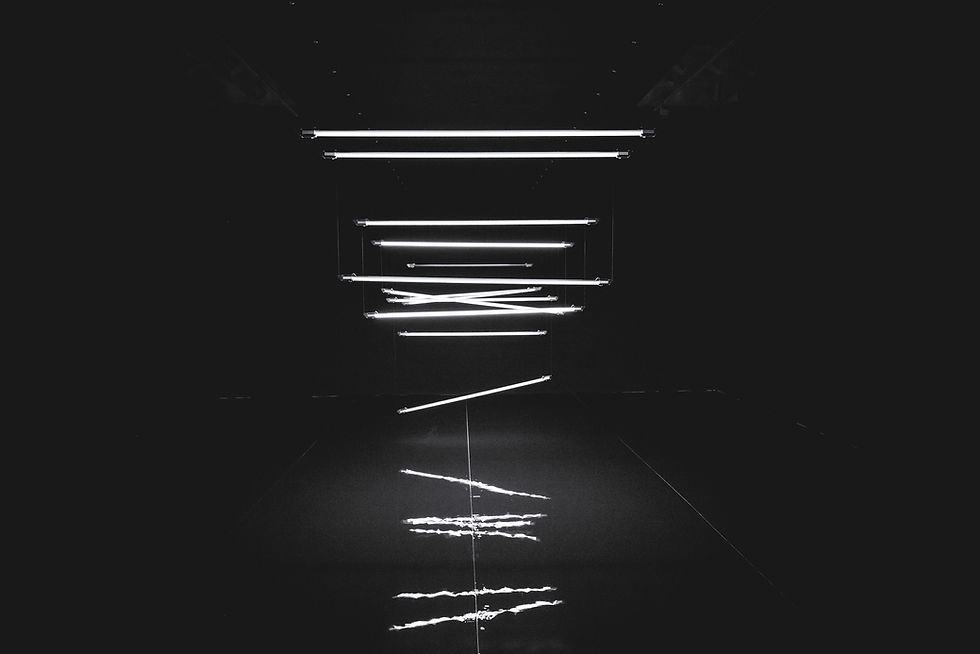A Tale of Two Moods: What is Bipolar Disorder
- Your San Antonio Psychiatrist
- Jan 21, 2021
- 3 min read
The symptoms of Bipolar Disorder vary from patient to patient, but there are certain symptoms that are more common. Its as if there is a tale of two moods. One moments a person is doing fine but then it dips down to a low mood of isolation and despair. The cycle continues with periods of productivity and lows.
Acknowledging the symptoms and seeking treatment when they exist is essential to successful treatment long-term. If you or a loved one experiences symptoms, consult with a licensed psychiatrist such as Dr. Javen Cavazos a Board Certified Adult Psychiatrist here in San Antonio, Texas at www.strivepsychiatry.com to learn about treatment options.
Symptoms of Bipolar Disorder
Bipolar disorder involves a change in mood. The two main types of episodes are mania and depression. The following is a review of the common symptoms associated with mania and depression, in addition to the psychotic symptoms some patients experience in more severe cases.
Mania
Mania is an episode that often occurs with most types of bipolar disorder. It is a more severe form of hypomania, and the symptoms include:
Feeling excited and upbeat, irritable
Increased energy and movement
A euphoric, self-confident feeling
Talkative and thoughtful
Change in behavior
Many with bipolar disorder have many new ideas and racing thoughts that change frequently. Some may also make poor decisions, such as going on a buying spree and or ill advised impulsive decisions. The severity varies, and the amount of time bipolar patients remain in the manic state varies as well.
Depression
The opposite polarity of a manic state is depression, which is also common among patients with bipolar disorder. Common symptoms of depression include but are not limited to:
Feelings of sadness or emptiness, irritability
Loss of interest and lack of pleasure
Decreased concentration and motivation
Reduced energy and fatigue
Inability to sleep
Many patients describe this a low period of no energy, less socially interactive, or withdrawn. Many patients with depression due to bipolar disorder also experience suicidal thoughts, particularly during more severe episodes. As with a manic state, the level of severity and the length of time the patient remains in a depressed state varies.
Psychosis
Psychotic symptoms do not always occur with patients that have bipolar disorder. Psychotic symptoms may occur at a more severe form. The two main psychotic symptoms of note are hallucinations and delusional thoughts. Often, psychotic symptoms reflect the current mood of the patient. If they are in a manic state, they may have delusional thoughts such as being able to fly, or extremely important whereas a patient in a depressed state may focus on negative components in life.
Treatment
If you or a loved one experiences severe mood swings and multiple symptoms of bipolar disorder exist, then it is important to visit a psychiatrist to receive an accurate diagnosis and to learn about treatment options. Many patients find quick and long-lasting relief from bipolar disorder through treatment, but it starts with seeking professional help from a licensed and experienced psychiatrist.
Talk to an experienced psychiatrist about bipolar disorder
Are you or a loved one experiencing any of the aforementioned symptoms of bipolar disorder? If so, contact Javen Cavazos MD a Board Certified San Antonio Adult Psychiatrist. She takes pride in helping our patients deal with their bipolar disorder and related symptoms long-term so that they can live a healthy life without symptoms controlling them daily. Appointments can be scheduled at www.strivepsychiatry.com




Comments